BY MIKE MUTHAKA
These legs know no slow pace. They are used to rapid motions, their triceps relaxing and contracting as they walk up the hilly gravel slope. These legs are black as night and tough as nails. These legs know no pedicures, and neither do they give a damn about what’s trending on Twitter. They don’t know who Ruth Kirathe is. If they did they wouldn’t find her funny.
Mornings, these legs thunder through the biting cold on the shoulder of Namanga Road, in the township of Kitengela. They go up to the crest of the hill, where they’ll take a left turn and walk some 2 km to the work station. These legs are tucked inside gumboots for 12 hours a day, which means their feet pack some serious heat.
These are not my legs, obviously. These legs belong to the flower farmers of Kajiado.
The lady legs come with lesos and turbans. The guy legs come with smoldering cigarettes and hand-held static-filled radios.
These legs toil under greenhouses up to around 1 p.m.
Then they break for lunch, streaming down the hill like a marching band, quick step. I wonder what these legs have for lunch. Maybe githeri, served up in aluminum plates. The bigger mystery, however, is whether these legs take off the gumboots during lunch. Or they eat standing up like the Exodus?
At 2 p.m. these legs get back on the road, up the hill and into the farm.
These legs are probably responsible for the flower you’ll buy next month, during Valentine’s. These legs water the flowers, and prune them, and spray them with insecticide. Some of the mature flowers are packed into boxes and shipped by lorry to the airport, where they’ll be exported to Europe. Maybe the flowers will go to London; and end up in an old woman’s home, in a green vase, atop some peach colored furniture –a flower to light up the grimness of Brexit.
At 6 p.m. these legs will check out. The setting sun will have dyed the sky a fabulous mix of flaming reds and navy blues. It’s against this beautiful backdrop that these legs go home. They give the impression of cheery kids going home after school. You’d look happy too if you hung around flowers as much as they do.
I think about these legs each time I needle my feet into my running shoes, and I imagine how it must feel to be inside a pair of gumboots for 12 hours.
I see these legs when I’m on the trail. Wiry legs outlined against the graying sky. Curious eyes lurking behind the shadows. Sometimes I hold my breath while I run past the legs because I don’t want to intrude into the peaceful dawn chorus with my heavy breathing. And when I get tired I can hear their taunting little voices, saying, “Tired already? Come on, you started two minutes ago. You’re such a softie.”
**
Before I go on, allow me to make a case for my hands:
These hands like to grab a cold beer on a hot day. These hands support my unfit body while I do pushups, and they wander about my chin when it’s time to make tough decisions.
These hands collect lighters (I have 20 lighters so far).
These hands have travelled up stair balustrades; to girls’ bedrooms, to hospital wards, to job interviews.
These hands have had the pleasure of meeting wonderful people. These hands have also felt the icy chill of death, when, in 2017, I touched the lifeless body of my grandpa the morning he died.
These hands have held wide-eyed babies and wiped tears off girls’ cheeks, and helped strangers with their luggage.
I touch myself with these hands.
These hands have loved and lost. They have embraced and waved goodbye.
These hands have broken things, and taped them back together.
I’ve always been told I have soft hands. My childhood friends told me. My campus mates told me. Mr. Mwangi, my primary school English teacher, told me – and just as he was sizing up my hand with a bamboo cane. My mother also told me, except, coming from her felt more like an observation than an underhanded attack at my masculinity.
I’ve been reminded of my soft hands in many different ways.
“Mikono zako ni soft.”
“Your hands are so soft aki.”
“Oh my God, what soap do you use?”
It’s rarely a compliment. And I never quite know how to react, especially if it’s in a group setting, because I can hear what everyone else is thinking:
“He’s a softie.”
“He can’t possibly handle a jembe.”
“I bet his clothes are washed by a maid.”
One condescending fellow in high school even said, “Hizi ni mkono za mwanaume? Dame anataka kuskia ameshikwa na mwanaume, si msichana mwenzake.”
Then he laughed. He laughed even harder when I countered by saying his ‘rough and manly’ hands could cause problems on a girl’s ‘down there’.
So I grew up knowing my hands were terribly feline, and I resented them. I began to think I was truly doomed to fail as a guy.
Maybe God made a mistake, I thought. Maybe I should have been a girl. Maybe God created me on a hot Saturday, and He couldn’t concentrate that well because He was in a hurry to catch the Arsenal match in the afternoon. So He just rummaged around the Lost & Found, grabbed a pair of hands, and attached them to me. Then He stood back and said, “Hmm, fits like a glove.”
Soon, though, these snide comments about my hands lodged themselves into my person, and gelled into my head. I even began to think through my handshakes.
Will they notice my soft hand? What will they think of it? Will they give it a tighter squeeze, just to see if they can break it?
Speaking of handshakes, I bet you don’t have to have hard hands to be a politician. All our politicians ever seem to do is dither. The trick, it seems, is having a loud mouth and a microphone. Ruffle feathers and push your agenda. Hold rallies. And if you don’t feel like attending a rally, you can hold a press conference at some botanical garden and spew some gobbledygook about how we should all focus on “moving forward” and “building the nation.”
Then when the cameras are turned off you go have a croissant and an agreeable cup of tea.
Anyway, no more am I aware of my hands than in the morning, when I part my curtain and see the construction site across the road.
They’re a building an estate – mansions and high-end apartments – complete with a mall and a pre-school and a gym. All things posh. I can usually see the mjengo guys, walking along the unfinished buildings, navigating the metal rods jutting through slabs of rock. I can hear the roar of lorry engines ferrying ballast. The days are populated with drills and hammers. And in the gap of traffic you can hear the workers’ banter.
**
I can’t help but feel terribly inadequate every time I see those workers. My soft hands would never last a day at a mjengo. My back will cave in. My hands can’t possibly be in the same sentence as ‘kukoroga slab’. Hehe.
In the evening some of the workers walk past our house, through the shrubby path and over the dried up stream. They’re always so jolly, like the flower farmers, but with their hands caked in dust, swinging with a demure appreciation of an honest day’s work.
I usually look at my own hands then. These hands that make the keyboard sound like staccato bursts of gunfire. I don’t know about you but I think they’ll endure, all these hands and legs, hard and soft, will endure and prevail.
—-
Follow Mike on Instagram: mikemuthaka
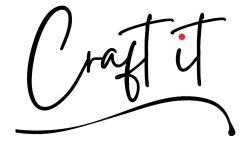
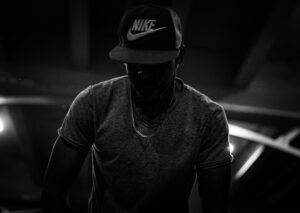
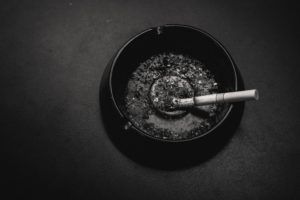

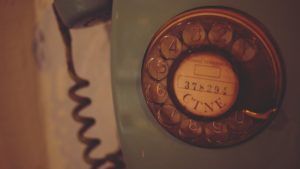

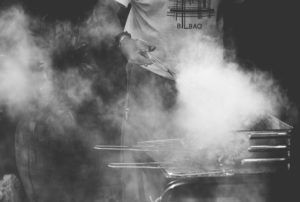





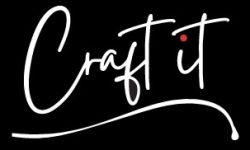

I loved this one. Great read!
Thanks a lot, Roy.